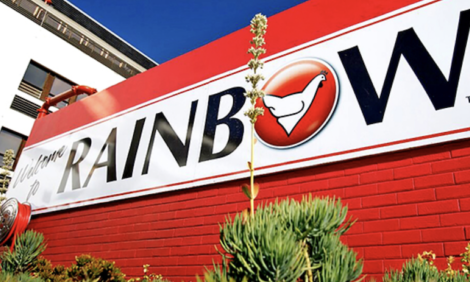



Poultry Operator Seeks Govt's Nod to Direct Import Maize
SRI LANKA - Ceylon Grain Elevators PLC, a poultry group that operates a feed mill, has appealed to the government to allow it to directly import maize as the local prices remain elevated and the import restrictions have begun to hurt operations.MirrorBusiness reports that the higher prices of poultry feed or maize have long been a nagging issue for the poultry industry in Sri Lanka as the local production remains significantly insufficient.
The required maize is imported by third parties on the licences issued by the government, which could also lead to corruption and favouritism.
The import duties for years have artificially pushed up the prices of maize swelling the prices of chicken and eggs in return, depriving the opportunity to a large section of society to meet their daily protein intake at a reasonable price.
"The hiked price of local maize and associated import restrictions persisted during the period under review, which have directly affected the group’s bottom line," said Primus Executive Director and Ceylon Grain Elevators Chief Executive Cheng Chih Kwong in a note to the firm’s recently released interim financial accounts. Sri Lanka cut the taxes on maize a fortnight ago.
Ceylon Grain Elevators, which owns a majority stake in Three Acre Farms, the market leader in broiler and layer day-old chicks, saw its net profit for the June quarter (2Q18) declining by as much as 51 percent year-on-year (YoY) to Rs.140.5 million or Rs.2.34 cents a share, as the direct costs rose faster than revenue.
Revenues for the same period rose by 9.0 percent YoY to Rs.3.84 billion but the cost of sales rose by 17 percent YoY to Rs.3.52 billion, significantly narrowing the gross profit to Rs.324.7 million from Rs.530 million a year ago.
"Therefore, with the aim of relieving the local maize supply shortage condition, appeals have been made to the government to issue import permits of maize directly to the feed millers to enable them to use their management skills to procure better quality maize at competitive prices at the right time," Primus further said.
The drought has also negatively affected Sri Lanka’s domestic maize production, local media reported recently. Reports show that Sri Lanka’s per capita chicken consumption has increased from an average 6.9 kilogrammes to 7.3 kilogrammes in 2016.
The rise in tourism trade as well as the significant surge in HORECA sector (hotels, restaurants and catering) has also contributed to the higher demands for chicken and egg. Hence, at a time when the industry is poised for growth, it is unfortunate that the restrictive supply condition, which benefits a few third party importers under the government patronage, is limiting the potential.
Meanwhile, for the six months ended 30 June 2017, the group, which engages in manufacturing and selling of poultry feed and other animal feed among a host of related activities, posted a net profit of Rs.308.4 million or Rs.5.14 a share, 50 per cent down from Rs.619.5 million it reported a year earlier.
The group also engages in importing and selling poultry equipment, drugs and vaccines, operating poultry breeder farms, raising grandparent and parent stock and hatcheries, hatching and selling day-old chicks, operating commercial farms, poultry processing and distribution and providing warehouse facilities.
As of 30 June 2017, Prima Limited in Singapore held a 45.45 per cent stake in Ceylon Grain Elevators followed by the Employees’ Provident Fund and Supra Limited Hong Kong with 8.92 per cent and 8.63 per cent stakes, respectively.








